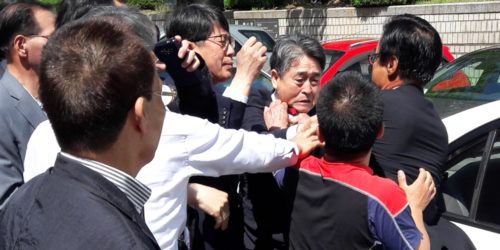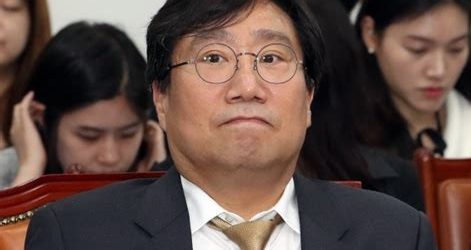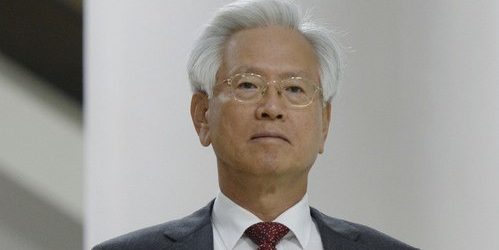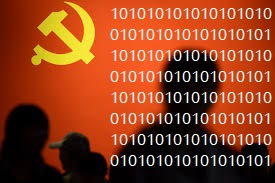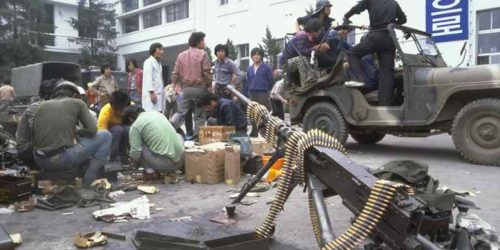The Worship of the Gwangju 5.18 Incident and the Suppression of Freedom of Speech and Human Rights: Prosecutor Wants 4 Years Jail for Dr. Ji Man-won, 11 Citizens to be Criminalized for “5.18 History Distortion Punishment Act” Violations
Update as of 2022-2-25: The judges sentenced Dr. Ji Man-won to 2 years of imprisonment on February 16, 2022. The sentence was not carried out.
—–
Update as of 2022-1-25: The judges delayed the decision from January 21, 2022 to some future time.
—–
2022-1-13, Tara O
Appeals Court Judges to Decide 4 Years of Jail or Not for Defamation
On January 21, 2022 at 10:30 a.m., the court will make a decision about whether or not to imprison Dr. Ji Man-won (79 years old). The prosecutor is asking for 4 years in prison for defamation of the Gwangju Incident of May 1980 and those who do not want any different perspectives about history, other than the version that became dominant since the 1990s (vs. the one prior).
The initial trial began on May 19, 2016. The prosecutor asked for 4 years imprisonment. Judge Kim Tae-ho (김태호) sentenced Dr. Ji to 2 years in prison and ₩1 million ($850) fine. The implementation of the sentence was deferred. The case went to the appellate court.
[Note: In another 5.18 defamation case, the Supreme Court fined Dr. Ji Man-Won and Newstown ₩82,000,000 (~$72,440) as well as fined Dr. Ji an additional ₩95,000,000 (~$84,000).]
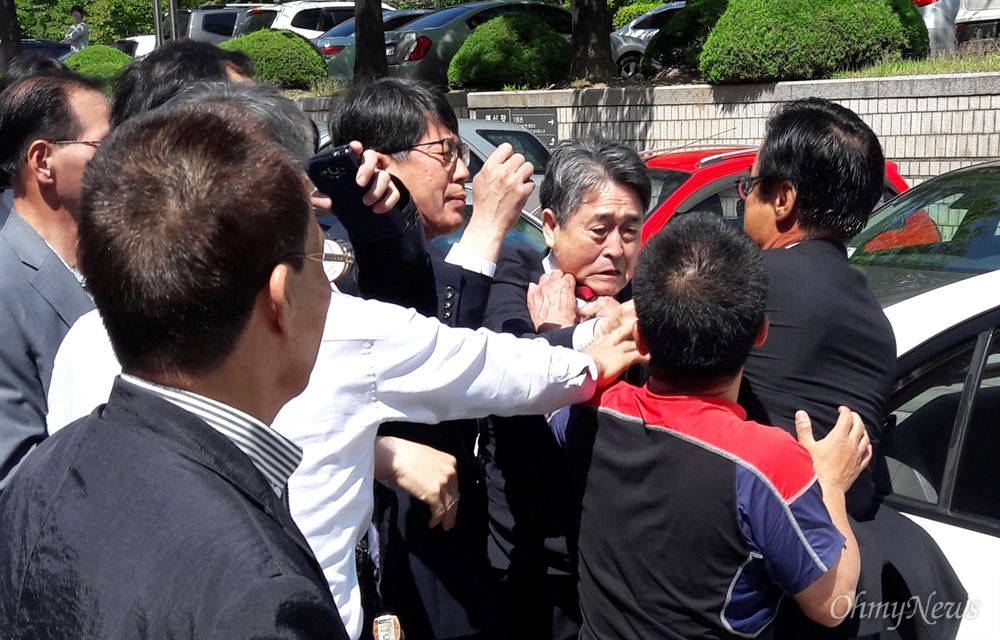
Judges Kim Ye-young (김예영) (Presiding Judge), Jang Seong-hak (장성학) (Chief Judge), Jang Yoon-seon (장윤선) (Chief Judge) of the Seoul Central District Court, Section 8-3, will make a decision on the appeals. Prosecutor Kim Young-nam, currently the Chief Prosecutor for Criminal Justice Section 4 of Daejon District, is asking for 4 years imprisonment for Dr. Ji for libel.
Sanctification of the Gwangju Incident (5.18)
The Gwangju Incident of May 1980 has become a subject that demands unquestioned acceptance and even worship by various 5.18 groups as well as the Moon Jae-in government. Punishment, physical violence, and verbal attacks await those daring to question it. Heavy censorship is applied.
The 5.18 Commemoration Foundation Institute (5.18 기념제단연구소) has also monitored online videos from 2003-2019 and made a list of YouTube channels and videos to block. The government then stepped in. South Korea’s internet censorship organization Korea Communications Standards Commission (KCSC 방송통신심의위원회 or 방심회 for short ) then took measures, resulting in Google (which owns YouTube) completely deleting Dr. Ji’s entire YouTube channel (and all its videos) and blocking videos of other channels for “distorting history” about the Gwangju Incident of May 1980. The Newstown channel was also completely deleted sometime after.
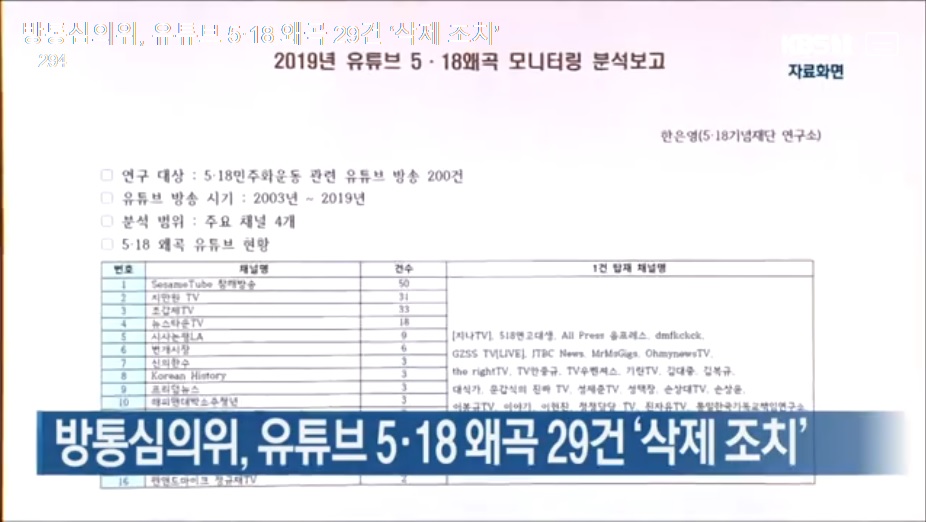
The government also took further measures to censor people. The ruling Democratic Party of Korea (Deobureo Minjoo Party) introduced and passed the so-called 5.18 History Distortion Punishment Act, which criminalizes and punishes people for “distorting the 5/18 democracy movement.” The punishment is up to 5 years in prison and/or a ₩50,000,000 ($42,000) fine. This enforcement of the law began on January 5, 2022.
For the past six months, the police have been investigating 11 people in their 20s to 40s with “distorting 5.18 history” for their comments on social media and/or posting videos online, and referred them to prosecution this month, when the enforcement of the Act began. Apparently, they posted that 5.18 was a riot or that North Korean forces were involved, and to say such things is not only a taboo, but after the “5.18 History Distortion Punishment Act,” it is now a “crime” in South Korea.
Under this 5.18 History Distortion Act,
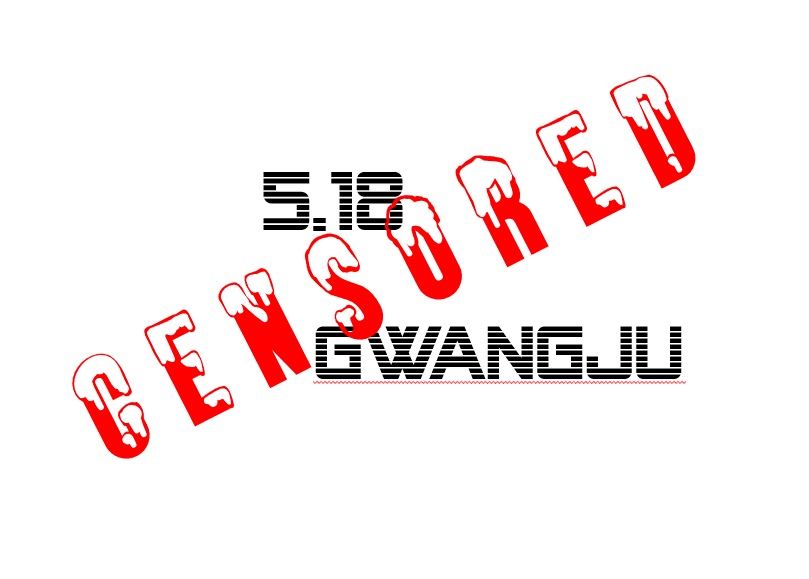
“The use of newspapers, magazines, broadcasts, and other publications or information and communication networks, exhibitions, publications, publications or screenings of exhibits or performances, and other performances, such as discussion sessions, meetings, press conferences, rallies, and remarks about the 18 May democracy movement, shall result in imprisonment for not more than five years or a fine not exceeding ₩50 million ($42,000).”
It makes an exception, but it is cryptic and even contradictory: Exception is made “if historical distortion is intended to report on the progress of art, academic, research, theory, current affairs, or history, or for similar purposes.” The law does not state who determines the history is distorted or provide the definition of “distorted history.”
The ruling Democratic Party of Korea should not have introduced and passed such an Act that violates fundamental freedom, which is a human rights violation. Thus, the Democratic Party of Korea (DPK) is abusing human rights, using the law. The main opposition party, the People Power Party, should also be speaking out and protecting the freedom of expression of its citizens, but shamefully has remained silent.
Worse, the leadership of the main opposition party, currently named the People Power Party (PPP, then named Liberty Korea Party), punished its own lawmakers in early 2019 for speaking about or sponsoring a public hearing on the Gwangju Incident. Many of the PPP leaders rush to the 5.18 Memorial in Gwangju and kneel or bow their heads as a top priority item when they become leaders of the party. It is a political hot potato. The ruling DPK as well as some leaders of the PPP have stated adding the nebulous “Gwangju 5.18 spirit” in the constitution by amending the nation’s highest law.
The Moon Jae-in administration even mulled ending the burials of military veterans at national cemeteries in order to create space for the so-called “Democracy Movement Meritorious Persons,” which include those designated as “5.18 Meritorious Persons.”
Kim Dae-jung Peace Center also took actions to suppress a different voice. The Center sued a defector and author Lee Ju-seong for defamation for writing Purple Lake, a book about North Korean forces involvement in Gwangju in May 1980, for which the judge sentenced Lee to 1 year imprisonment. The publishers were so afraid to publish the topic, that he had to start his own publishing company to publish his book. North Korea Freedom Coalition, a human rights NGO based in the U.S., wrote a letter on August 4, 2020 to President Moon Jae-in asking him to stop suppressing fundamental freedoms, including the cases of Lee Ju-seong and Dr. Ji Man-won.
Republic of Korea boasts about being part of the group of advanced countries, with membership in the G-20 and OECD, its cutting-edge technology, and its K-Pop culture, but when it comes to having a civilized discourse about its history, it falls far below the standard. Scholars and citizens are not allowed to have alternate thoughts or even allowed to utter them when it comes to the Gwangju Incident, which has been referred to as the Gwangju Uprising, Kim Dae-jung Revolt, and Gwangju Democracy Movement. Meanwhile, despite the public demand on accountability, the 5.18 groups also refuse to make public the names of those designated as “5.18 Meritorious Persons,” who receive extremely generous financial and other benefits for life from the government.
This censorship is not yet reflected in the U.S. State Department’s annual Country Reports on Human Rights Practices, but should be. South Korea’s freedom index score is 83 out of 100, and that index also does not mention these various measures that suppress freedom of speech and the press, but if it were to, South Korea’s score would be far less. The placing of the Gwangju Incident on a pedestal above all else should stop. People should be free to engage in discussions about various facts and aspects about May 1980 in Gwangju.
